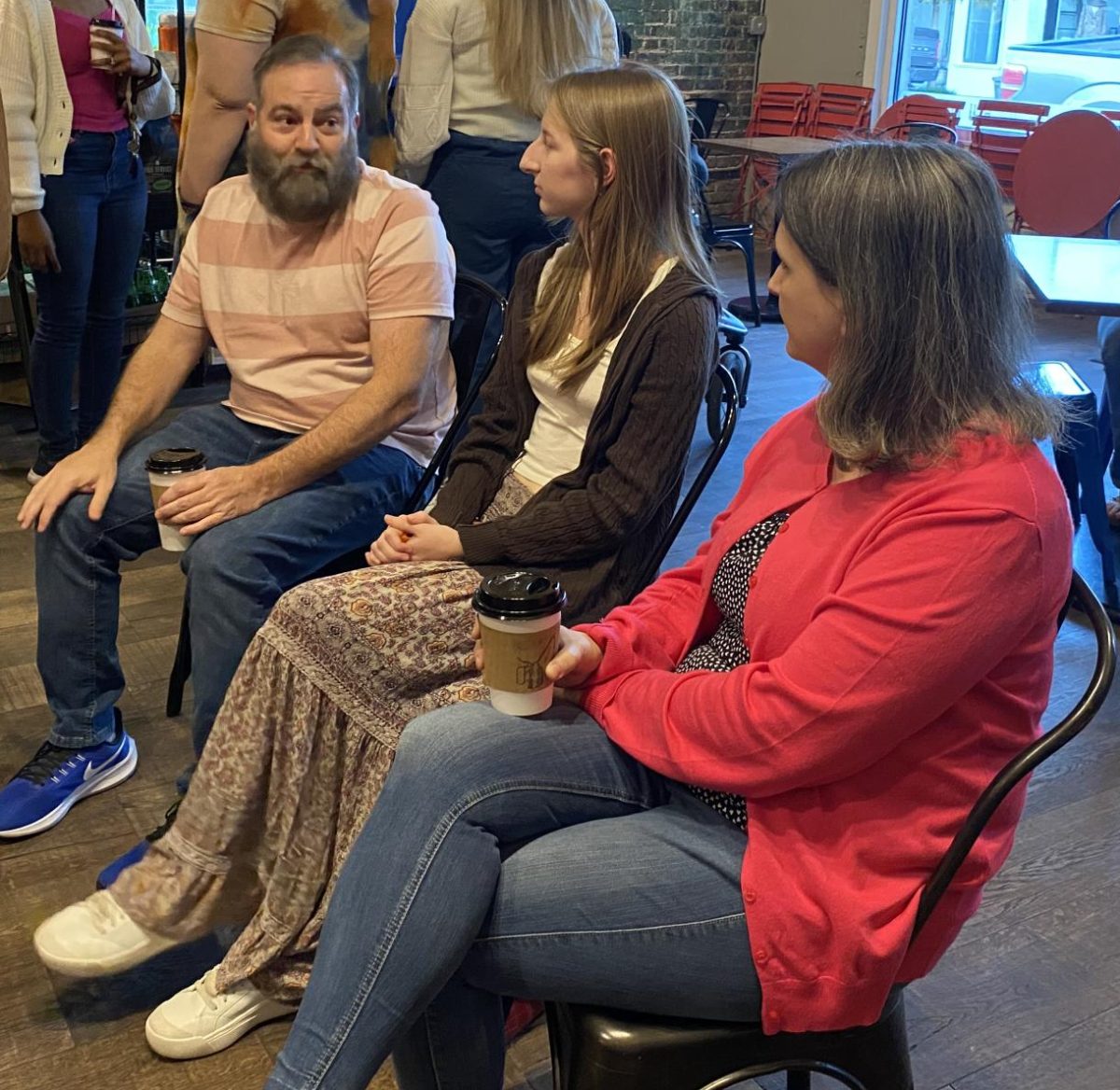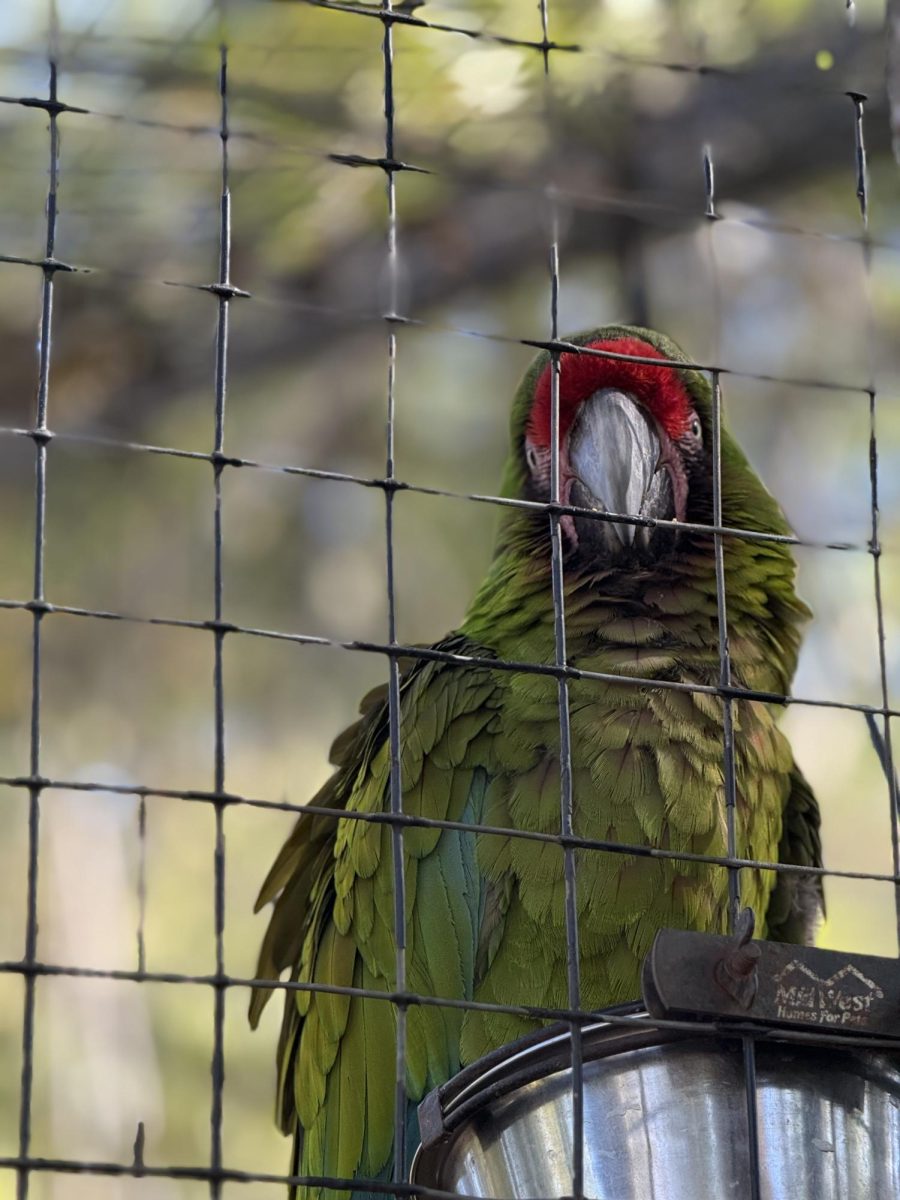Warhawks and members of the community sipped delicious coffee while immersing themselves in the literary arts at last Thursday’s Brew and Bards. Students showcased their literacy talents to a packed house at Standard Coffee Co.
Brew and Bards started out as Beer and Bards back in 1983 after being established by members of the ULM English faculty. After taking place at Enoch’s Irish Pub for 30 years, organizers moved it to a coffee shop to be more inclusive for younger students and non-drinkers.
English professor Jack Heflin has hosted the event since 1987. He explained why it is important for student writers to have this opportunity.
“I think it’s good for every university town to have a community reading series. Writers tend to be more introverted, so it’s good to get people together here to talk,” Helfin said. “It’s a great outlet for them to share their work and receive some recognition.”
English graduate student Kaylee Sadler recited her poetry from the past several years. Her heartfelt poems described her relatable yet deep feelings about life events such as moving into a new home or caring for a grandparent. She based her piece, “Lunchbox Love Letters,” on her relationship with her grandfather.
“Poetry is what I want to do with my life,” Sadler said. “I love getting to share my work with the community, and it’s a great support system to have. A lot of the people here are also writers, and they give me great feedback.”
Mallory Kaul, an English graduate student, narrated her piece, “Blanco Biggs is Live on Air.” As she switched from character to character, her voice breathed life into the men on her pages. “Blanco Briggs is Live On Air” transported audiences into the lives of southern hard-working men.
ULM students were not the only ones there to support the writers. People from all over the community came to listen to the soothing works of literature.
Samantha Hogan, the coordinator of scholarships for ULM, believes that Brew and Bards generates support for the humanities.
“The most important part of this is the community aspect,” Hogan said. “It gets people out of their shells and supporting the humanities outside of just the university environment. There are people who may not be students anymore but still value opportunities to hear other’s work.”



